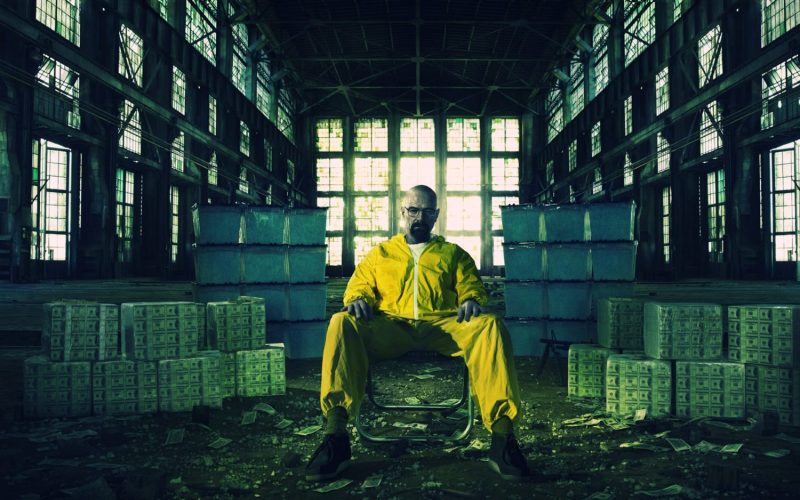
The WGA writers’ strike could last well into late summer, according to CBS News. Plenty of TV shows — from late-night talk shows to scripted series like Billions, Severance, and Stranger Things are already being affected — and a lengthy strike would mean a dramatically different television landscape in the coming months. The outcome of this strike is undoubtedly important, but there might be a little part of you that’s wondering how your favorite show could be affected — after all, plenty of us remember the shows that were canceled as a result of the 2007 writers’ strike. Well, if your favorite show is anything like Breaking Bad, the strike might actually be a good thing.
Breaking Bad is undoubtedly one of the greatest antihero dramas in the history of television. Charting the moral descent of a meek man, Walter White (Bryan Cranston), into a ruthless and ego-maniacal drug kingpin, the AMC show was a daring and beautifully acted spectacle. Part of the reason the program was able to separate itself from the competition was due to its patience and willingness to let storylines breathe and develop across many seasons. The payoff after the lead-up was always a climactic explosion with many different parts coming together in unison. But what if I told you that the only reason Breaking Bad was successful was because of the 2007 writers’ strike held by the WGA (Writers Guild of America)?
The first season of Breaking Bad was supposed to run for nine episodes. Creator Vince Gilligan had massive plans during the ninth episode of the season, plans that would have ruined the future of the show as we know it. Gilligan knew that the margins for success were thin for his little cable drama about meth and a cancer-ridden teacher. He originally thought that a season one finale that featured huge plot turning points would convince audiences and his bosses to give the show a longer leash. Ironically, this would have backfired with catastrophic results.
Two of the most important supporting characters in Breaking Bad are Jesse Pinkman (Aaron Paul) and Hank Schrader (Dean Norris). Jesse was Walter’s second-in-command in the drug trade, a former student of Walter’s who gradually fell into depression and drug addiction in the face of adversity. Hank was Walter’s DEA agent father-in-law who attempted to track Walter’s drug empire without knowing his family member was the criminal behind the enterprise.
Gilligan planned on writing one or both of these characters out of the first season finale as a way of creating a wake-up call for Walter. While the idea was sound in nature, it would have dramatically changed the way the ensuing seasons of the show panned out. Jesse and Hank are arguably as important to Walter’s journey as any other characters on the show. Without them, the slow-burn character development and the relationships that formed the backbone of the drama in the series would have never existed.
Fortunately, the writers’ strike gave Gilligan a lot more time to stew on potential plot points, and he decided it would be better to force the audience to be patient and wait for the story to gain more steam, keeping Jesse and Hank in the process. This is potentially the greatest instance of negative intervention (the writers’ strike), symbolizing a blessing in disguise in TV history. The heartbreaking way Jesse’s character took shape and the juxtaposition of Walter and Hank’s morals throughout seasons two through five would have never happened, and Breaking Bad would have simply been a decent show rather than a GOAT one.
With the current 2023 writer’s strike still going on right now, we have to wonder what shows will be forever changed due to the work stoppage. Some lucky show might just become the next Breaking Bad due to the time off that will allow creators to rethink their entire stories!



